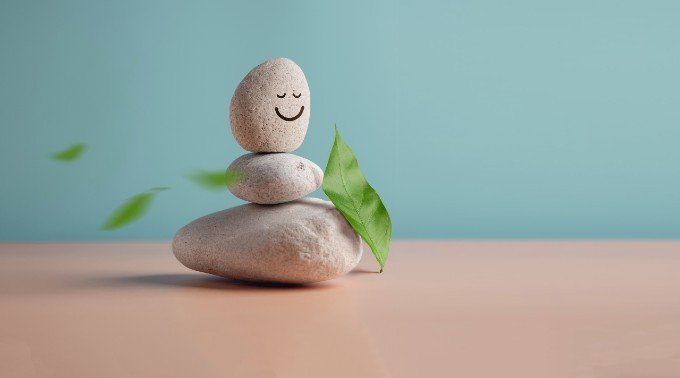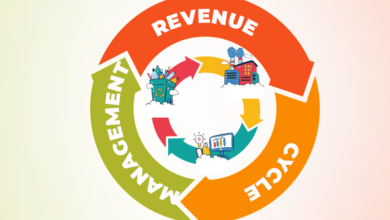The Power of Mindfulness Incorporating Mindful Practices in Life Coaching

In today’s fast-paced world, the practice of mindfulness is gaining traction as a pivotal tool for personal and professional growth. For life coaches, wellness enthusiasts, and those seeking personal development, incorporating mindfulness into daily routines and coaching practices can yield profound benefits. This blog post explores the power of mindfulness, its scientific foundation, and practical ways to integrate it into life coaching.
Understanding Mindfulness and Its Role in Coaching
Mindfulness is the art of being fully present and engaged at the moment without distraction or judgment. It’s about tuning into your thoughts, feelings, and surroundings with a heightened sense of awareness. In life coaching, this practice can be instrumental in helping clients gain clarity, focus, and the ability to manage stress effectively.
Life coaches who understand mindfulness can guide their clients toward increased self-awareness and emotional regulation. By encouraging clients to be mindful, coaches help them unlock untapped potential, setting the stage for meaningful transformations. Whether it’s through breathing exercises, meditation, or mindful listening, integrating these practices can enhance the coaching experience.
Mindfulness isn’t just a trendy buzzword; it’s a potent tool for personal development. Coaches who incorporate mindfulness techniques into their sessions can foster deeper, more impactful connections with their clients. This not only improves client outcomes but also enriches the coaching process, making it more fulfilling for both parties involved.
The Science Behind Mindfulness
Numerous studies highlight the psychological and physiological benefits of mindfulness practices. Research indicates that regular mindfulness practice can reduce stress, improve attention, and increase resilience. These benefits are crucial for clients seeking personal development and wellness.
Mindfulness affects the brain in fascinating ways. It enhances neural connections, particularly in areas associated with attention, empathy, and emotional regulation. This neurological impact is part of why mindfulness is so effective in life coaching, as it cultivates skills that are essential for personal and professional growth.
Furthermore, mindfulness practices have been linked to physical health benefits, such as lower blood pressure, improved sleep quality, and enhanced immune function. For life coaches, understanding these scientific underpinnings provides a compelling case for integrating mindfulness into their coaching toolkit.
Mindfulness in Life Coaching Sessions
Life coaching is about guiding clients toward achieving their goals and overcoming obstacles. Mindfulness enhances this process by encouraging clients to be present in their experiences and emotions. When clients practice mindfulness, they become more attuned to their thoughts and behaviors, allowing for a more profound exploration of their desires and challenges.
Coaches can introduce mindfulness in various ways. Simple breathing exercises can help clients center themselves before a session, creating an open and receptive mindset. Guided meditations can facilitate introspection, aiding clients in identifying core values and aspirations. Mindful listening exercises enhance communication skills, fostering deeper connections between coach and client.
By incorporating mindfulness into coaching, life coaches can create a space where clients feel empowered to explore their inner landscapes. This not only enriches the coaching experience but also equips clients with tools they can use beyond the sessions, promoting long-term personal development.
Practical Tips for Incorporating Mindfulness
For life coaches and individuals alike, integrating mindfulness into daily routines doesn’t have to be daunting. Start small by dedicating a few minutes each day to mindful breathing or meditation. Gradually increase the time spent as you become more comfortable with the practice.
For coaches, incorporating mindfulness into sessions can begin with setting a mindful intention at the start. Encourage clients to take a few deep breaths and focus on the present moment before diving into discussions. This simple practice can set a positive tone for the session and enhance engagement.
Individuals seeking personal development can explore various mindfulness techniques, from body scans to mindful journaling. Experimenting with different practices allows you to find what resonates best with you, making mindfulness an enjoyable and sustainable part of your routine.
The Future of Mindfulness in Life Coaching
The future of mindfulness in life coaching looks promising. As our understanding of mindfulness deepens, new opportunities for integration will emerge. Trends indicate a growing interest in digital mindfulness tools, such as apps and online platforms, which can complement traditional coaching methods.
Personal development seekers are increasingly drawn to holistic approaches that address both mental and physical well-being. Mindfulness aligns perfectly with this trend, offering a comprehensive framework for growth. Life coaches who stay ahead of these trends can position themselves as leaders in the field, attracting clients seeking innovative and effective coaching solutions.
In summary, the evolving landscape of mindfulness offers exciting possibilities for life coaches and personal development enthusiasts. By staying informed about these trends and continuously integrating mindfulness into their practices, coaches can remain relevant and impactful in a rapidly changing world.
A New Beginning with Mindfulness
In conclusion, mindfulness is a powerful tool that can transform the coaching experience for both coaches and clients. Its benefits extend beyond stress reduction, encompassing personal development and enhanced emotional intelligence. By incorporating mindfulness practices into their routines, coaches can offer more insightful, meaningful sessions.
For those embarking on a mindfulness journey, the path may seem challenging at first, but the rewards are immeasurable. Whether you’re a life coach or someone seeking personal growth, mindfulness can be a guiding light on your path to self-discovery and fulfillment.
If you’re ready to take the next step, consider integrating mindfulness into your life coaching practice or personal development routine. Explore resources, attend workshops, or connect with a mindfulness community to deepen your understanding and experience. The world of mindfulness is vast, and the possibilities for growth are endless.
The Mindful Revolution in Life Coaching
In today’s fast-paced world, the practice of mindfulness is gaining traction as a pivotal tool for personal and professional growth. For life coaches, wellness enthusiasts, and those seeking personal development, incorporating mindfulness into daily routines and coaching practices can yield profound benefits. This blog post explores the power of mindfulness, its scientific foundation, and practical ways to integrate it into life coaching.
Understanding Mindfulness and Its Role in Coaching
Mindfulness is the art of being fully present and engaged in the moment without distraction or judgment. It’s about tuning into your thoughts, feelings, and surroundings with a heightened sense of awareness. In life coaching, this practice can be instrumental in helping clients gain clarity, focus, and the ability to manage stress effectively.
Life coaches who understand mindfulness can guide their clients toward increased self-awareness and emotional regulation. By encouraging clients to be mindful, coaches help them unlock untapped potential, setting the stage for meaningful transformations. Whether it’s through breathing exercises, meditation, or mindful listening, integrating these practices can enhance the coaching experience.
Mindfulness isn’t just a trendy buzzword; it’s a potent tool for personal development. Coaches who incorporate mindfulness techniques into their sessions can foster deeper, more impactful connections with their clients. This not only improves client outcomes but also enriches the coaching process, making it more fulfilling for both parties involved.
The Science Behind Mindfulness
Numerous studies highlight the psychological and physiological benefits of mindfulness practices. Research indicates that regular mindfulness practice can reduce stress, improve attention, and increase resilience. These benefits are crucial for clients seeking personal development and wellness.
Mindfulness affects the brain in fascinating ways. It enhances neural connections, particularly in areas associated with attention, empathy, and emotional regulation. This neurological impact is part of why mindfulness is so effective in life coaching, as it cultivates skills that are essential for personal and professional growth.
Furthermore, mindfulness practices have been linked to physical health benefits, such as lower blood pressure, improved sleep quality, and enhanced immune function. For life coaches, understanding these scientific underpinnings provides a compelling case for integrating mindfulness into their coaching toolkit.
Mindfulness in Life Coaching Sessions
Life coaching is about guiding clients toward achieving their goals and overcoming obstacles. Mindfulness enhances this process by encouraging clients to be present in their experiences and emotions. When clients practice mindfulness, they become more attuned to their thoughts and behaviors, allowing for a more profound exploration of their desires and challenges.
Coaches can introduce mindfulness in various ways. Simple breathing exercises can help clients center themselves before a session, creating an open and receptive mindset. Guided meditations can facilitate introspection, aiding clients in identifying core values and aspirations. Mindful listening exercises enhance communication skills, fostering deeper connections between coach and client.
By incorporating mindfulness into coaching, life coaches can create a space where clients feel empowered to explore their inner landscapes. This not only enriches the coaching experience but also equips clients with tools they can use beyond the sessions, promoting long-term personal development.
Practical Tips for Incorporating Mindfulness
For life coaches and individuals alike, integrating mindfulness into daily routines doesn’t have to be daunting. Start small by dedicating a few minutes each day to mindful breathing or meditation. Gradually increase the time spent as you become more comfortable with the practice.
For coaches, incorporating mindfulness into sessions can begin with setting a mindful intention at the start. Encourage clients to take a few deep breaths and focus on the present moment before diving into discussions. This simple practice can set a positive tone for the session and enhance engagement.
Individuals seeking personal development can explore various mindfulness techniques, from body scans to mindful journaling. Experimenting with different practices allows you to find what resonates best with you, making mindfulness an enjoyable and sustainable part of your routine.
The Future of Mindfulness in Life Coaching
The future of mindfulness in life coaching looks promising. As our understanding of mindfulness deepens, new opportunities for integration will emerge. Trends indicate a growing interest in digital mindfulness tools, such as apps and online platforms, which can complement traditional coaching methods.
Personal development seekers are increasingly drawn to holistic approaches that address both mental and physical well-being. Mindfulness aligns perfectly with this trend, offering a comprehensive framework for growth. Life coaches who stay ahead of these trends can position themselves as leaders in the field, attracting clients seeking innovative and effective coaching solutions.
In summary, the evolving landscape of mindfulness offers exciting possibilities for life coaches and personal development enthusiasts. By staying informed about these trends and continuously integrating mindfulness into their practices, coaches can remain relevant and impactful in a rapidly changing world.
A New Beginning with Mindfulness
In conclusion, mindfulness is a powerful tool that can transform the coaching experience for both coaches and clients. Its benefits extend beyond stress reduction, encompassing personal development and enhanced emotional intelligence. By incorporating mindfulness practices into their routines, coaches can offer more insightful, meaningful sessions.
For those embarking on a mindfulness journey, the path may seem challenging at first, but the rewards are immeasurable. Whether you’re a life coach or someone seeking personal growth, mindfulness can be a guiding light on your path to self-discovery and fulfillment.




